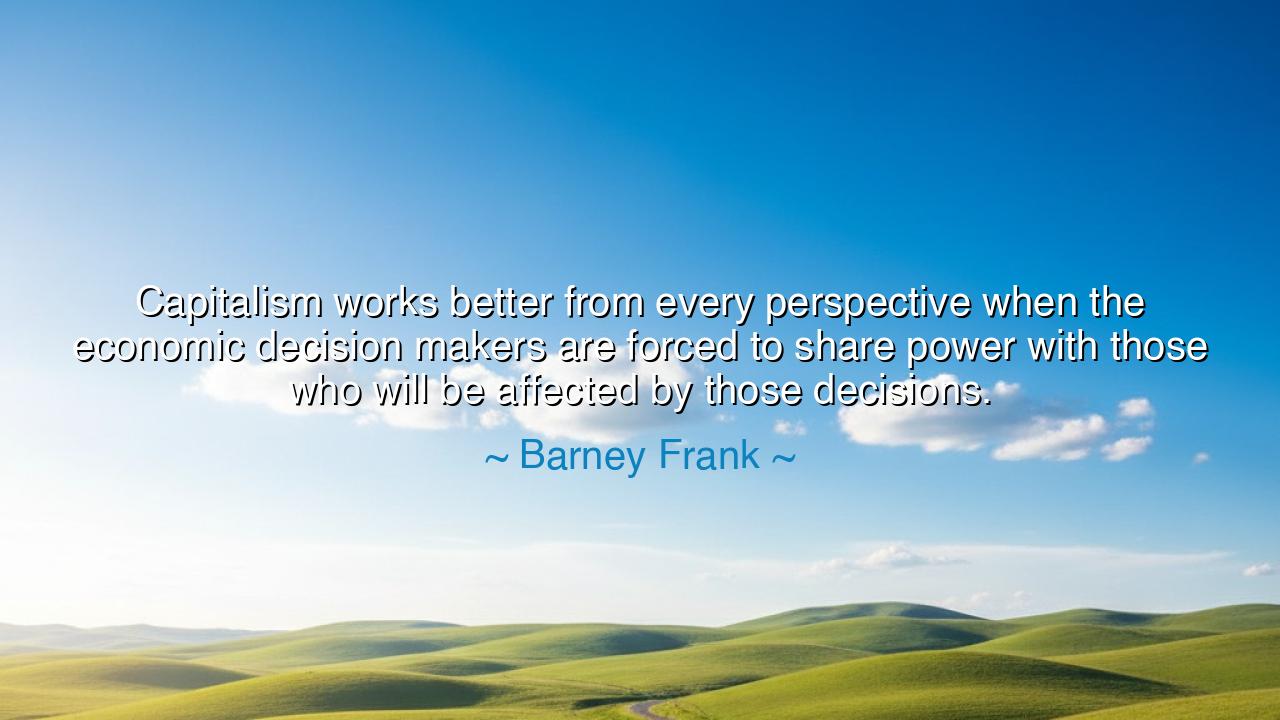
Capitalism works better from every perspective when the economic
Capitalism works better from every perspective when the economic decision makers are forced to share power with those who will be affected by those decisions.






The wise statesman Barney Frank, a voice for justice in the realm of governance, once declared: “Capitalism works better from every perspective when the economic decision makers are forced to share power with those who will be affected by those decisions.” These words strike at the heart of society’s great challenge: how to balance power and fairness in a world driven by wealth. They remind us that prosperity cannot endure when it flows only upward, leaving the hands of the many empty while a few decide the fate of all.
Capitalism, like fire, can warm a home or consume a city. When its flames are guided with care, they bring innovation, abundance, and progress. But when those who hold economic power act alone, without heed to the workers, families, and communities touched by their choices, the system falls into chaos and injustice. Sharing power is not weakness—it is wisdom, for it ensures that decisions are made with a full understanding of their consequences. In this balance, capitalism becomes not merely a system of profit, but a foundation for harmony.
History gives us a powerful example in the Industrial Revolution. In the early factories of England, decisions were made solely by factory owners, whose only concern was profit. The workers, including women and children, endured endless hours in unsafe conditions, their voices unheard. This imbalance led to suffering and violent unrest, until reformers fought for laws that gave workers a voice—unions, safety standards, and fair wages. When the power of decision-making was shared, society began to stabilize, and prosperity grew more evenly. Thus, the very survival of the system depended on inclusion.
Another example can be seen in the Great Depression of the 1930s. Banks and wealthy elites made reckless decisions that plunged millions into poverty. In response, leaders like Franklin D. Roosevelt introduced policies such as Social Security and labor rights, forcing those in power to consider the needs of the people. These changes not only healed the nation’s wounds but also preserved capitalism itself, showing that shared responsibility strengthens the whole rather than weakening it.
Let this teaching be carried forward through the ages: power must never rest solely in the hands of the few. When those affected by decisions are silenced, resentment and rebellion will grow, and even the wealthiest throne will topple. But when power is shared, and the voices of workers, citizens, and communities are heard, a system is built upon trust and justice. For the prosperity of the few can never endure unless it is bound to the well-being of the many, and in this harmony lies the true strength of any nation.






AAdministratorAdministrator
Welcome, honored guests. Please leave a comment, we will respond soon